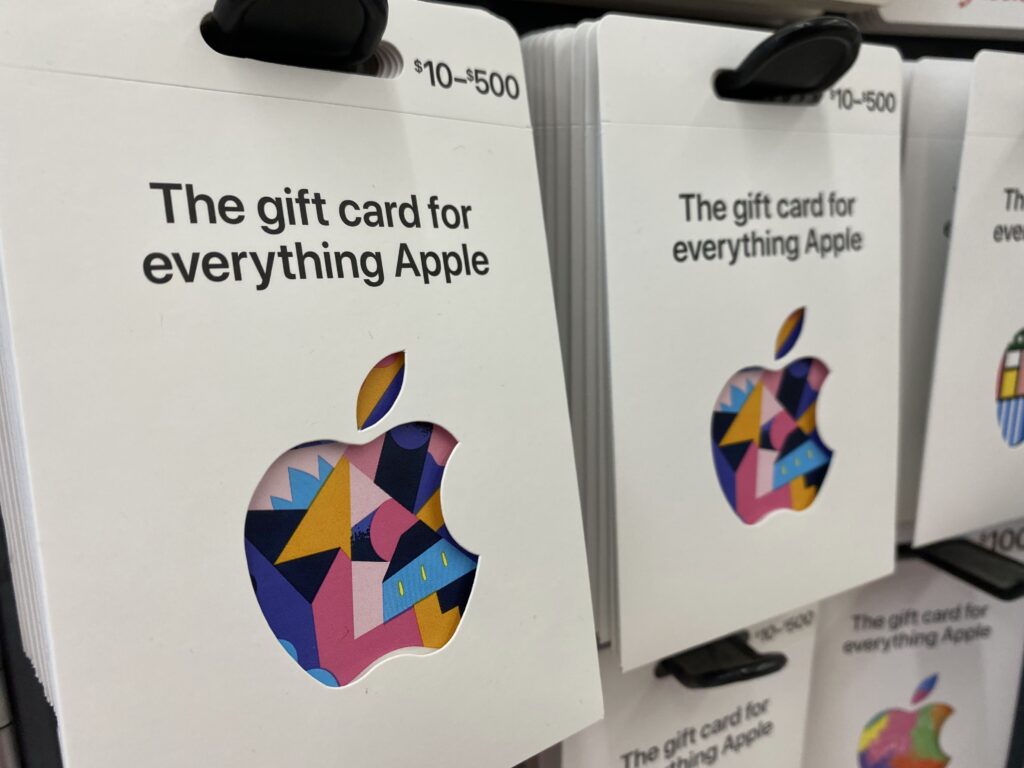Fraudsters in the UK are employing increasingly sophisticated tactics to dupe unsuspecting victims. Their latest weapon of choice is the Apple gift card scam. These cunning criminals impersonate familiar individuals from the victim’s email contact list, fooling recipients into sending what is essentially untraceable money, cleverly disguised as gift cards, directly to the perpetrators.
Unpacking the Apple Gift Card Scam
A comprehensive understanding of this scam requires a detailed look at its operations. Typically, the criminals commence by breaching an individual’s email account. Once inside, they dispatch emails to all contacts on the list, masquerading as the compromised account’s owner. By leveraging personal information and mimicking the victim’s conversational style, these crafty con artists build a credible façade that’s hard to see through. The appeal for help, usually framed as an urgent request for high-value gift cards, forms the crux of this elaborate scam.
An anonymous victim recounted their disturbing encounter with the Apple gift card scam to a UK news outlet. This individual received an email from an elderly neighbour who had recently undergone heart surgery. The email outlined the neighbour’s alleged hospitalisation and the need to send a birthday gift to their niece. The recipient, accustomed to helping the neighbour, did not find the request unusual or suspect any foul play.
Building Trust and Setting the Trap
The ensuing exchange of emails saw the fraudster, posing as the elderly neighbour, introduce the need for gift cards. The fraudulent request was strategically positioned as a birthday present for the supposed niece. The victim of the scam remarked that an initial request for gift cards would have set off alarm bells. However, the trickster cunningly fostered rapport through multiple emails before broaching the topic of money, thereby successfully disarming the victim.
The trickster specified the gift they desired – two £100 Apple gift cards to be purchased solely from the Tesco website. Distracted by work, the victim unwittingly fell for the trap and purchased the gift cards. The scam artist even involved the victim in deciding how the gift card should be signed, adding a layer of authenticity to the request.
Official Intervention and Victim’s Realisation
Shortly after the transaction, Tesco’s fraud team contacted the victim. They pointed to a recent increase in similar fraudulent activities and attempted to cancel the transaction. Once the victim realised the deceit, the fraudster sent another email, demanding an additional £400. The fraudster stopped responding when the victim enquired further about the neighbour’s hospital stay. The victim then discovered that the scammer had also targeted her mother, who had fortunately dismissed the email.
In response to the surge in scams, Tesco, North Yorkshire Police, and Apple have all issued stern warnings. Tesco’s website displays a safety warning before any Apple gift card purchase, advising against using gift cards for payments or buying them for someone else. Similarly, North Yorkshire Police have issued warnings against responding to such requests, pointing out that hackers often compromise the sender’s account and then dispatch the scam message to their entire contact list.
Fraudsters’ Choice: Why Apple Gift Cards are Attractive
Apple, too, has addressed this issue, alerting customers about various scams demanding payments for taxes, hospital bills, bail money, and other expenses through different modes, including gift cards. Apple advises against sharing gift card codes with unknown individuals and recommends using Apple Gift Cards only for legitimate Apple purchases.
Apple’s products, known for their robust resale value, have become a prime target for fraudulent activities. Significantly, Apple gift cards, with a high limit of £500 and strong demand in secondary markets, present an appealing tool for these fraudsters. The anonymity these gift cards provide further amplifies their attractiveness. This reinforces the need for consumers to stay vigilant and informed to avoid falling prey to such scams.



